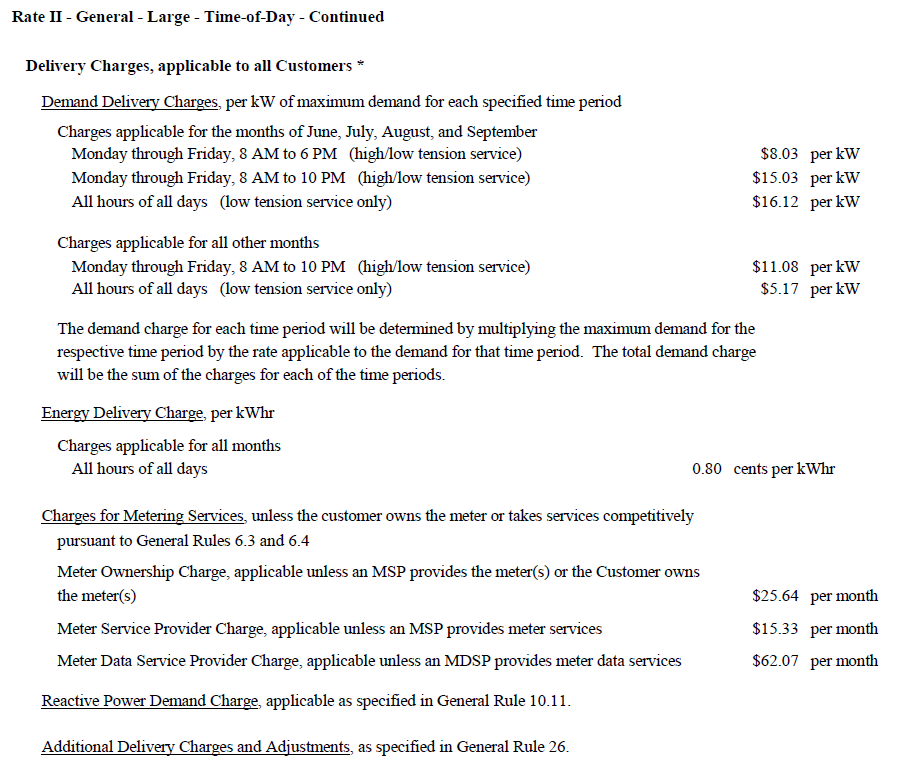Defining demand charge for three block rates
I am trying to define the tariff for the time-of-day rates defined as -
- I am trying to use the three blocks applicable at the same time, i.e., for peak hour in June is it going to be (8.03+15.03+16.12)? This is for each 1/2 hour max demand, isn't this too high? The last rate(16.12) says 'low tension only'? Is this correct understanding? While other months the max is (5.17+11.08) for demand charges.
How to define the TimeOfUseSchedule for the common interval of 8 am to 6 pm (as peak(1) and mid peak(4))? (EnergyCharges is small at $0.008 with no peak rates.)
How will the off-peak (3) for winter and summer be aggregated ? Only one variable is automatically generated for 'offPeakDemand'.




